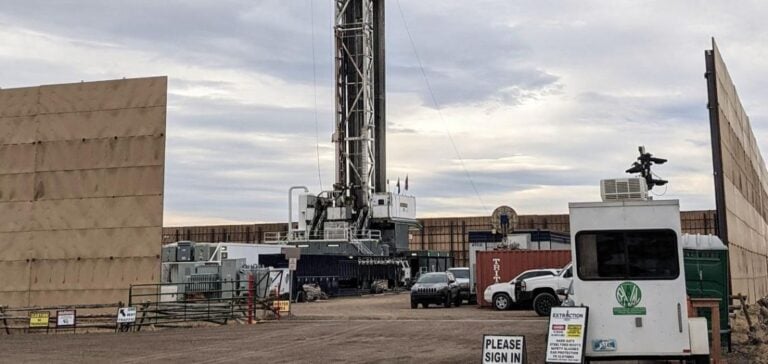Civitas Resources, a significant player in the oil sector, has consolidated its position in the Permian Basin following two major acquisitions in 2023 and 2024. These operations have doubled the company’s size, allowing it to maintain a diversified portfolio in this strategic region, considered one of the most profitable in the United States.
Since these acquisitions, Civitas has focused on improving the profitability of its wells in the Permian by optimizing costs and drilling cycles. According to its CEO, Chris Doyle, the well costs in this area continue to decrease thanks to shorter cycle times and innovations in drilling and completion design. The company has also initiated the use of SimulFrac technology, a completion method that enables the simultaneous completion of two horizontal wells, thus reducing production lead times.
Increased productivity in the Midland sub-basin
The first results of this technique in the Midland sub-basin show an increase of more than 30% in daily flow, demonstrating the method’s efficiency. Additionally, Civitas has identified 120 potential sites in the Wolfcamp D sub-zone, with breakeven points estimated around 40 dollars per barrel.
The Permian Basin has also seen the addition of 75 new drilling locations for Civitas over the year, as well as several strategic land swaps aimed at extending horizontal well lengths and enhancing the company’s production interests in key development projects.
The DJ Basin: continued success in Colorado
In Colorado, in the DJ Basin, Civitas’ installations are also performing well. In the prolific Watkins area, which represents a significant part of the company’s production for 2024, Civitas has commissioned 13 wells with extreme lengths of 4 miles (about 21,000 feet), a record in the industry. This innovative configuration has shown no degradation in yield compared to shorter wells.
One of the most productive wells, Blue 4AH, even set a production record in the State of Colorado with a cumulative production of 165,000 barrels over 90 days and a peak production rate of 2,013 barrels per day over 30 days.
Impact of favorable regulations in Colorado
Recent regulatory decisions in Colorado have also contributed to Civitas’ performance. The adoption of the Lowry Ranch Comprehensive Area Plan in Arapahoe County, which authorizes more than 150 wells near the Aurora reservoir, schools, and residential areas, has allowed the company to secure its operations in this zone. However, the plan includes environmental conditions, requiring Civitas to use electricity for its drilling operations and obtain additional approvals for each site.
Civitas’ total production in the third quarter of 2024 amounted to 348,000 barrels of oil equivalent per day, a slight increase from the previous quarter and nearly 50% up from the previous year. Oil production alone, which reached 159,000 barrels per day, was slightly impacted by water transportation constraints in the Permian and by third-party infrastructure interruptions in the DJ.
Finally, Chris Doyle noted that maintenance capital expenditures were insufficient to ensure a steady production increase this year, resulting in concentrated operations in the middle of the year. However, he anticipates a rise in production by the end of the year and the beginning of the first quarter of 2025.





















